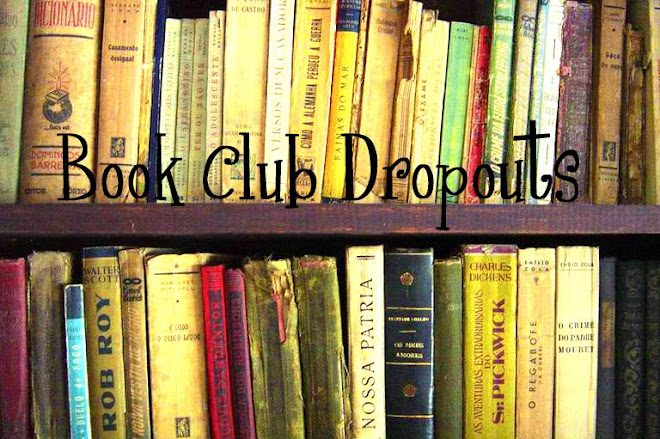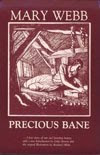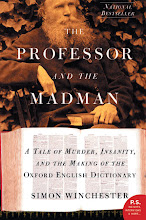Here's a few of my thoughts regarding the book.
While nonfiction, it read like a story. It was compelling. It was sad. It was gross (you who have read it know what I'm talking about).
Dr. Minor (the madman who contributed so incredibly to the dictionary) suffered acutely for many years in confinement. His nights were filled with the torture of hallucinations, paranoia, and fear. Treatment for his mental illness was largely absent, and so his work on the dictionary became his therapy.
In the words of the author:
One must feel a sense of gratitude, then, that his treatment was never good enough to divert him from his work. The agonies that he must have suffered in those terrible asylum nights have granted us all a benefit, for all time. He was mad, and for that, we have reason to be glad. A truly savage irony, on which it is discomfiting to dwell.While I loved learning about the backgrounds of the two men the book is about, and how their lives prepared them to work on the writing of the OED, my favorite part of the book was the third character: the OED itself.
It's no secret that I love books. And with that love of books and reading has come a love of words. I love to learn new words and use proper (though often uncommon) pronunciation. I like the subtleties of meaning and how words evolve over time. This book helped me understand that language is almost an organic entity. It lives, changes, grows, and some parts of it even die.
I found the process by which the OED was written to be fascinating. How the language's most comprehensive dictionary could have been compiled in a time before computers. The sheer magnitude of the task is boggling. The men who made it happen are geniuses, and we are indebted to them whether we realize it or not.
Winchester sums it up thus:
It was the heroic creation of a legion of interested and enthusiastic men and women of wide general knowledge and interest; and it lives on today, just as lives the language of which it rightly claims to be a portrait.






































No comments:
Post a Comment